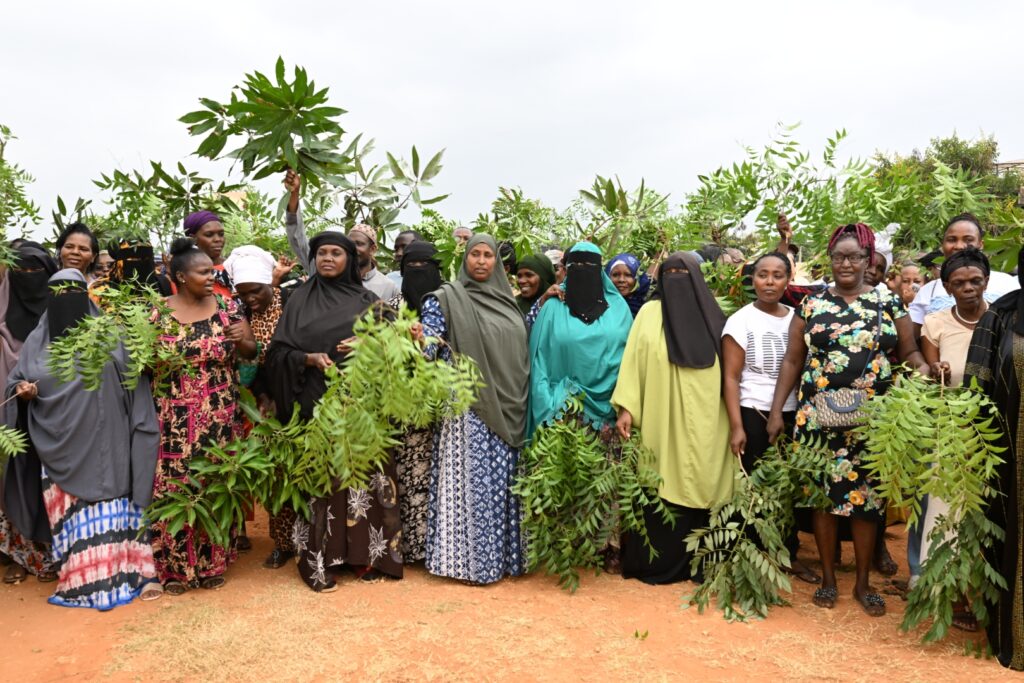By Nuru Salim
Parents in Kwale County have expressed outrage over the recent decision by the Controller of Budget, Margaret Nyakang’o, to halt county governments from issuing bursaries to secondary and university students.
The move has sparked protests in Ukunda Ward, Msambweni Sub-county, with parents demanding the reinstatement of the program, which they say has been a lifeline for thousands of struggling families.
Saumu Amani, a widow with three children, two in tertiary institutions and one in a national secondary school shared her frustration. “I am a widow, unemployed, and the sole provider for my three children.”
”This bursary program was a lifeline for families like mine, enabling us to keep our children in school despite financial struggles. Its removal will have devastating consequences, including increased school dropouts, juvenile gangs, and drug abuse, leaving our community’s future at risk,” she added.
Parents criticized the government for failing to involve the public in the decision-making process. They argued that such a critical initiative, which has had a profound impact on education in Kwale County should not be eliminated without consulting the community.
They also highlighted the program’s role in improving education standards in the region, which has historically faced challenges with poor academic performance.
The bursary program, introduced in 2013 under the leadership of former Governor Salim Mvurya, has consistently supported students from low-income families. Each year, an average of 16,805 students from secondary schools, colleges, and universities benefit from the initiative, which provides over KSh 500 million in funding annually.
Parents fear that without this support, many students will be forced to drop out of school, leading to a rise in social issues such as drug abuse, early pregnancies, and crime.
“This bursary program was the only hope for families like mine, especially those of us living with disabilities,” said Samini Mrabu, a physically challenged parent. “Without it, my child’s education is now uncertain, and it feels like the government has abandoned us. The removal of this initiative will not only hurt vulnerable families but also destroy the dreams and futures of countless children in Kwale County,” Mohammed Salim, a father of two, also expressed his disappointment with the government accusing it of sabotaging county efforts to support education.
“This initiative was not just about paying school fees, it was about giving hope to families struggling to provide for their children’s education,” he said.
Salim emphasized that the bursaries were a form of welfare designed to uplift the most vulnerable in society, particularly in a county like Kwale that has faced significant education challenges.
The parents also stated that the bursary funds are a result of the taxes they diligently pay to the government and should be used to benefit the community.
“We pay taxes with the hope that these resources will be reinvested in programs that uplift our communities, especially in critical areas like education.
”Denying us this benefit feels like corruption of our taxes and a failure to prioritize the needs of the people,” Salim added.
The removal of the bursary program, which was expanded by Governor Fatuma Achani to address the growing number of needy students, is seen as a blow to the progress made in education access in the county.
The program, known as Elimu ni Sasa, had successfully reduced dropout rates and improved academic performance in Kwale by addressing financial barriers faced by students.
Parents warned that the decision to cut off bursaries would reverse these gains and increase existing challenges, including poverty and unemployment.
They called on the national government and the Controller of Budget to reinstate the program, emphasizing its importance in ensuring equal access to education for all children, regardless of their socioeconomic background.
“We need this bursary initiative back, not just for our children’s education but for the wellbeing of our entire community. Without it, we risk creating a generation with limited opportunities and a county plagued by social problems,” As stated by Saumu.
The protests have highlighted the growing tension between the national and county governments over funding for education. Parents are urging the government to reconsider its decision, stressing that the future of Kwale County’s children depends on it.


